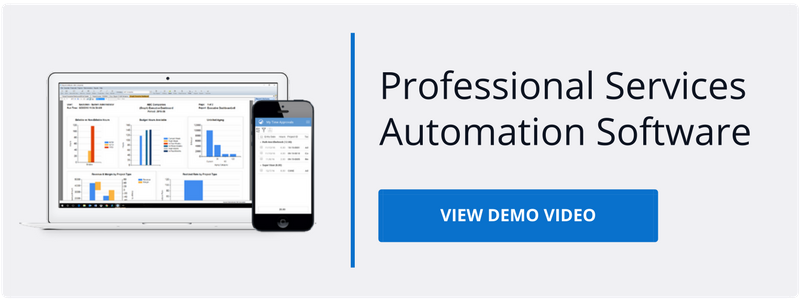The expanding global economy is offering growth opportunities to companies of all sizes and at all points on the corporate lifecycle. While many enterprises happily embrace and absorb the new work, others struggle to manage the almost certainly overwhelming load of incoming demands. A sizeable percentage of organizations of every size will fall short of their goals or even collapse completely under the unmanageable weight of corporate growth. At least a small part of the cause of those failures will be an unreasonable reliance on legacy tools and practices.
Unmanaged Growth Overwhelms Workers
The sheer volume of information flowing onto every worker's plate is expanding at an exponential rate. Although only one in seven emails is deemed important to any enterprise, today's workers routinely spend up to one-quarter of their time checking that resource for relevant information. If they are using their mobile device for that purpose, they may also be checking phone messages, text messages, and other company channels; some workers check their mobile devices as many as 150 times a day. And all this work-related tech-review is cutting into the worker's opportunity to unwind with friends and family, so they don't have the chance to regroup and rest before rising to the growing challenge the very next day.
For project-based workers, the challenge of being overwhelmed is made more difficult because they are required to report every action to a specific project. Being assigned to too many projects without the right tools to manage them with competence can cause employees to inadvertently charge one client's activities to another client's bill. Or they might forget to enter data at all if their work level is ultimately beyond their capacity. In either event, every entity will suffer: the employee, the customer, and especially the project producer, who may lose one or both worker and client in the fiasco.
Consequently, many experts recommend that at least one appropriate response to all this overwhelm is to simplify the workload. To accomplish that goal, each company should consider using simpler tools that are better designed to manage the information onslaught.
Divesting of Inefficient Tools
For many companies, especially smaller ones, existing tools were chosen not because of their efficiencies or capabilities, but because they were free. During the start-up phase, free was a good price and the scope of the tool was sufficient to manage all corporate requirements. Many successful companies began with good old Excel spreadsheets, which easily tracked customer information, sales data, incomes and expenses, and related information.
As they grew, however, the spreadsheets became more and more unwieldy, taking more time to manage but producing less value in the process. Corporations that realized they could no longer rely on spreadsheets or other basic data management tools often experienced the same set of common challenges:
.png?width=800&height=330&name=spreadsheet%20challeges%20(1).png)
1. More contributors added more challenges
As they added workers, companies were also adding contributors of data to increasingly complex spreadsheets. Not only did each contributor alter the overall effectiveness of the spreadsheet (including increasing the likelihood of errors) but keeping up with the current version frequently became an independent challenge in its own right. Teams were as busy finding the right spreadsheet to use as they were comprehending the data it contained.
2. Reporting from spreadsheets was cumbersome and time-consuming
Pulling data manually from multiple spreadsheets and project documents consumed considerable time, which sometimes rendered the final report partly or entirely obsolete when it was finally issued.
3. The spreadsheets didn't capture all relevant data
Even when each sheet was immaculately accurate and on-point, it still didn't include other corporate information that was both relevant and necessary to ensure the compilation of a complete record. Customer data, in particular, was often lost, as the spreadsheets didn't contain references to those histories, buying records, or omplaints notes. Projects that relied on spreadsheets couldn't capture the myriad of evolutions that each separate project undergoes each day, so project leadership couldn't make decisions based on current, relevant information.
New Tools Facilitate New Business
Those companies that evolve beyond their legacy data management systems are better able to absorb and manage new data from any source and therefore absorb new business as it comes in the door.
One of the most recommended new tools for any business but especially project-based businesses is a dedicated Professional Services Automation (PSA) tool that provides a full suite of services. Unlike stand-alone products that perform a single service through a single portal, today's PSA software combines whole segments of services into a single, integrated portal populated with every tool needed to get work done.
- Financial Management for automating key financial tasks, and recording/analyzing financial information
- Project Accounting to track all aspects of costs versus revenue and manage projects to profitability
- Mobile Time and Expense for employees to more accurately and efficiently capture T&E, leading to improved cash flow and billing cycle times
- Project Invoicing with configurable billing cycles and customizable invoices to meet customers' requirements
- Project Resources to effectively assign and manage resources and their rates, while optimizing staff utilization to increase revenue per employee
- Dashboards and Reports enable high-level views of performance as a whole, with the ability to drill deeper into projects and financials
Yesterday's stand-alone spreadsheets offered thousands of companies the ability to manage their launch and development into a mature enterprise. While those tools continue on as a foundation for the future, new tools have arrived to help corporations steer through emerging opportunities for the growth promised by today's evolving global marketplace. For help structuring your businesses' new PSA tools, contact us today.
For additional information on Beyond Software please contact:
Nicole Holliday
nholliday@beyondsoftware.com
866-510-7839



